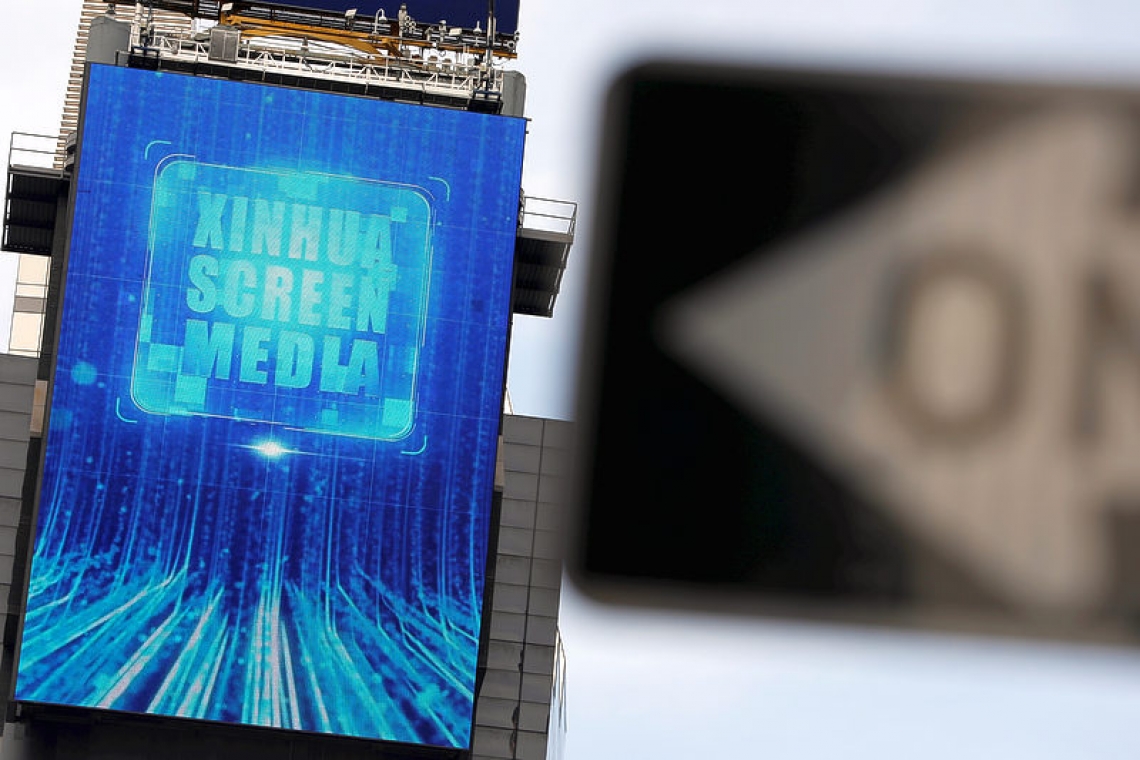WASHINGTON--The United States on Monday said it was slashing the number of Chinese nationals permitted to work at the U.S. offices of major Chinese state-owned media outlets to retaliate against Beijing's "long-standing intimidation and harassment of journalists."
Citing a "deepening crackdown" on all forms of independent reporting inside China, administration officials said Beijing's attacks on free speech were worse than they were a decade ago, comparing them to those of the Soviet Union at the height of the Cold War.
Effective March 13, Washington will cap the number of U.S.-based employees of Xinhua News Agency, China Global Television Network, China Radio International and China Daily Distribution Corp at 100 from 160 currently. Beijing's U.N. ambassador said the move was not "appropriate".
China last month revoked the visas of three Wall Street Journal reporters in Beijing after the newspaper declined to apologize for a column with a headline calling China the "Real Sick Man of Asia". Another reporter with the paper had to leave last year after China declined to renew his visa.
"For years, the government of the People’s Republic of China has imposed increasingly harsh surveillance, harassment, and intimidation against American and other foreign journalists operating in China," U.S. Secretary of State Mike Pompeo said in a statement.
Monday's decision was not particularly linked to the Wall Street Journal case nor the content the Chinese outlets in question produced, senior State Department officials told reporters, speaking on the condition of anonymity. "We've been imploring the Chinese for years and years now to improve their treatment of journalists in China. So, this is not linked to any one particular incident," one U.S. official said, but added that the expulsion of Journal reporters was a "fairly egregious" example.
While the U.S. officials said the move was not an expulsion of these Chinese nationals, they acknowledge that the people whose visas are contingent on their ability to work in the United States may be forced to leave the country. The four outlets were among five designated by the United States as foreign embassies earlier this month, as a first step of this move.







